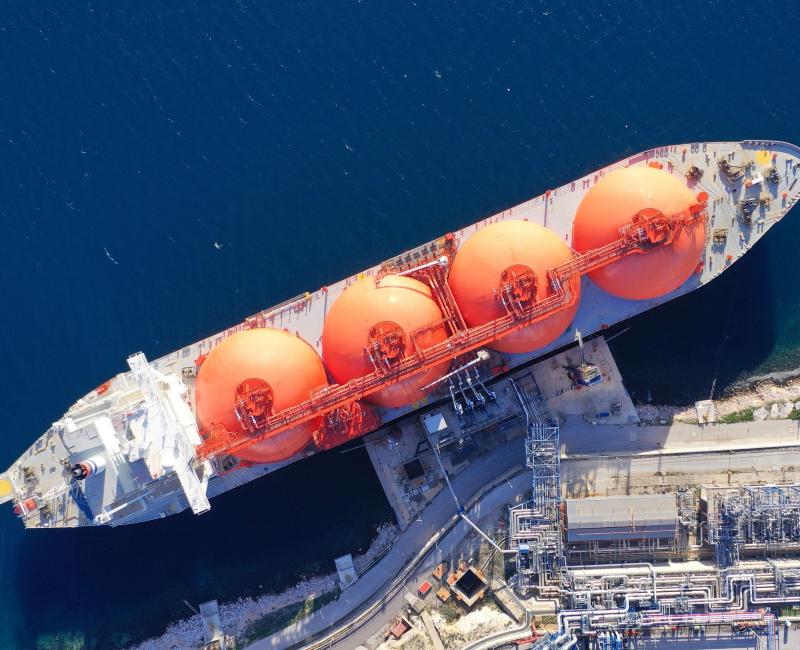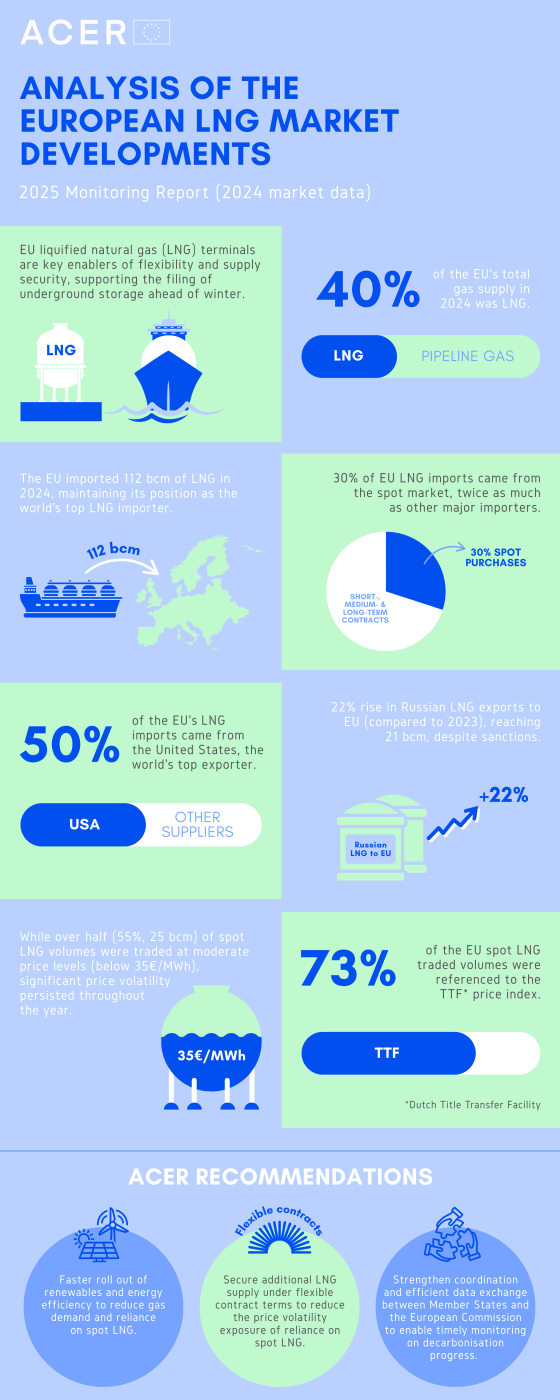EU’s reliance on spot LNG likely to continue without stronger decarbonisation
What is it about?
As Europe moves away from Russian fossil fuels, liquified natural gas (LNG) is becoming an increasingly important flexible supply source. But with future gas demand uncertain, the EU faces a trade-off: securing higher LNG volumes to ensure stabler pricing, while maintaining the flexibility to avoid over-contracting in a changing market.
ACER’s 2025 Monitoring Report highlights:
- LNG’s share of the EU’s total gas supply rose from 23% in 2020 to around 40% in 2024.
- The EU remained the world’s largest LNG importer, with 112 bcm imported despite a 17% drop from 2023.
- The US supplied nearly 50% of EU LNG imports, while Russian LNG to EU increased by 22%, despite sanctions.
- Over 550 EU spot LNG trades with delivery were reported to ACER, totalling 45.5 bcm – 55% of which were priced below 35 EUR/MWh.
- The EU purchased 30 bcm of LNG on the spot market, more than any other major importer.
- The EU faces up to 90 bcm of demand uncertainty between Fit for 55 and REPowerEU scenarios, which could lead to 30 bcm in additional LNG demand by 2030 (compared to 2024 levels) and prolonged reliance on the spot market.
ACER recommendations
To manage future gas demand uncertainty and price risks, key actions are needed from policymakers, network operators and market players:
- Accelerate decarbonisation efforts to reduce structural gas demand through faster deployment of renewables and improved energy efficiency.
- Secure additional LNG through flexible contracts to help reduce short-term exposure to price volatility.
- Improve coordination and effective data-sharing between Member States and the European Commission to enable better monitoring of decarbonisation progress and guide LNG procurement.
What are the next steps?
Register for the ACER webinar on the evolving role of LNG in Europe (28 May 2025).


